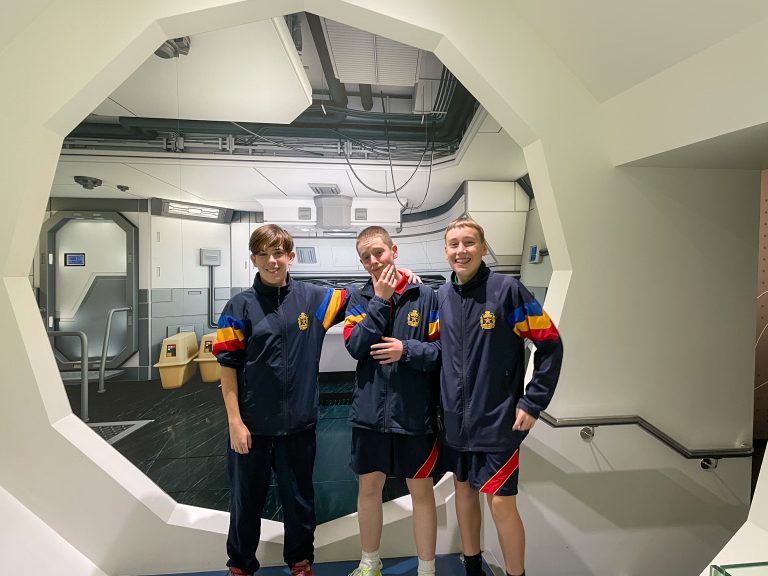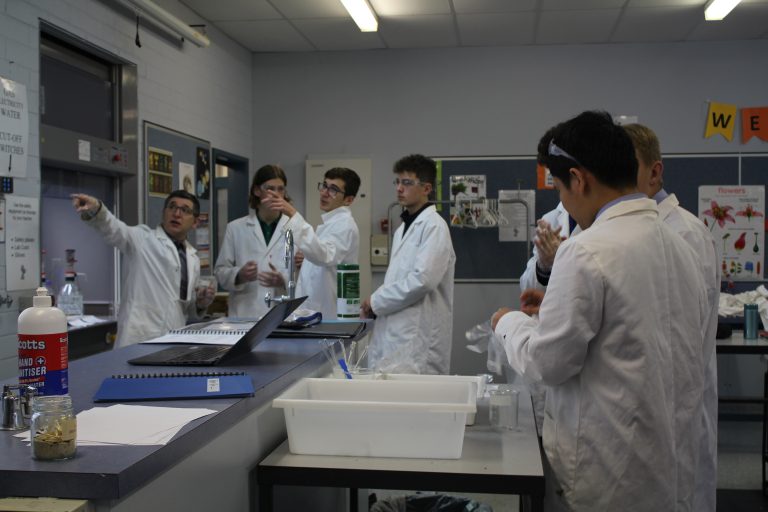Science education at St Bede’s College is dedicated to the development of enquiry based learning, where units are designed to:
- Motivate and enthuse students
- Be relevant to students’ lives
- Correlate to the Victorian Education Level standard
- Provide a solid basis to all the VCE Science subjects
- Challenge students of all abilities
Science classes are conducted in fully equipped laboratories involving the use of ICT and the latest in SMART board technology by enthusiastic and highly qualified teachers.

Years 7 and 8
Years 7 and 8 Science introduces the students to scientific investigation and the use of the laboratory. They develop skills in investigation and the use of different scientific equipment.
Topics studied include:
- Biology (Classification; Cells; Body systems)
- Chemistry (States of matter; Separating mixtures; Elements and compounds)
- Environmental Science (Rock cycle)
- Physics (Forces and energy)
Years 9 and 10
The Year 9 and Year 10 science course is compulsory for all students; students continue to develop their investigation skills in preparation for entering VCE.
Topics studied include:
- Biology (Body systems; Genetics; Evolution)
- Chemistry (Atomic structure; Periodic table; Chemical reactions)
- Environmental Science (Monitoring the environment)
- Physics (Electricity and circuits; Newton’s laws of motion; Forces)

VCE Science
The variety of VCE Science subjects caters for a wide range of interests as well as strengths of our students whether for pure enjoyment or as a prerequisite for university. All subjects involve the development of a number of key science skills. Subjects are taught according to their respective VCAA study design and for more information on each study please visit http://www.vcaa.vic.edu.au/Pages/vce/studies/index.aspx
Biology
Units studied include:
- How do living things stay alive?
- How is continuity of life maintained?
- How do cells maintain life?
- How does life change and respond to challenges over time?
Chemistry
Units studied include:
- How can the diversity of materials be explained?
- What makes water such a unique chemical?
- How can chemical processes be designed to optimise efficiency?
- How are organic compounds categorised, analysed, and used?
Environmental Science
Units studied include:
- How are Earth’s systems connected?
- How can pollution be managed?
- How can biodiversity and development be sustained?
- How can the impacts of human energy use by reduced?
Physics
Units studied include:
- What ideas explain the physical world?
- What do experiments reveal about the physical world?
- How do fields explain motion and electricity?
- How can two contradictory models explain both light and matter?
Psychology
Units studied include:
- How are behaviour and mental processes shaped?
- How do external factors influence behaviour and mental processes?
- How does experience affect behaviour and mental processes?
- How is wellbeing developed and maintained?








